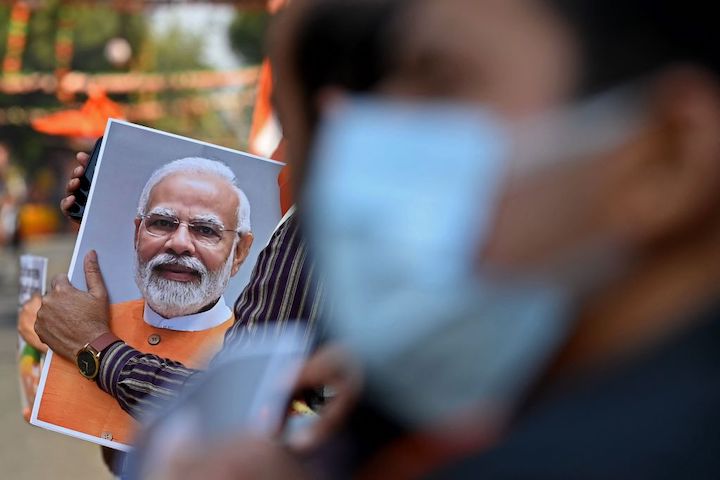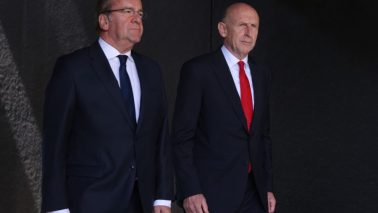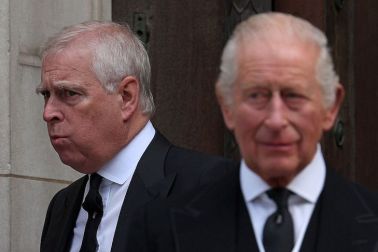BBC documentary India: The Modi Question, the second part of which airs tonight, has had a muted reaction in Britain. But the same cannot be said for India, where the country’s government has invoked emergency laws to block the broadcast of the programme.
The Modi Question focuses on the trouble that broke out in the western Indian state of Gujarat back in early 2002: at least 1,000 people, many of them Muslim, died during the riots. The violence erupted after 59 Hindu pilgrims, including women and children, died on a train that had been set on fire. The incident was blamed on members of the Muslim community – and the country’s PM Narendra Modi, who was then chief minister of Gujarat, was accused of not doing enough to quell the violence that lasted for a few days.
What is the truth about Modi’s role in the scenes of bloodshed in Gujarat?
But if Modi was indeed slow to respond then, his government’s reaction to the BBC show has been swift. India’s ministry of information and broadcasting has issued directions banning any clips from the episode. ‘The bias and lack of objectivity and frankly continuing colonial mindset are blatantly visible,’ according to Arindam Bagchi, spokesperson for India’s foreign affairs ministry.
So what is the truth about Modi’s role in the scenes of bloodshed in Gujarat? Modi has always denied siding with – or, indeed, turning a blind eye to – the mobs who targeted Muslims during the riots. In 2012, Modi was exonerated by a Supreme Court inquiry of the accusation of failing to stop the rioting; a petition appealing that decision was dismissed last year.
Modi’s supporters within his Bharatiya Janata Party (BJP) party will, of course, emphasise this point: the investigations into what unfolded have been extensive and, they say, Modi has been cleared of wrongdoing. But more than 20 years on, questions about Modi’s leadership as chief minister of Gujarat remain unanswered.
Jack Straw – who was foreign secretary in 2002 – is among those interviewed on the BBC documentary. What happened under his watch in Gujarat is ‘obviously a stain on his (Modi’s) reputation,’ he tells viewers. But even daring to ask questions about Modi’s leadership in Gujarat has been met with ire and indignation in India.
Kanchan Gupta, an advisor to the Indian government, didn’t mince his words about the BBC, describing the film as ‘anti-India garbage’ and saying that the show ‘cast aspersions on the authority and credibility of Supreme Court of India.’ Kiren Rijiju, India’s union law minister, also hit out at the BBC: ‘India’s image cannot be disgraced by malicious campaigns launched inside or outside India,’ he wrote on Twitter.
But not everyone agrees: opposition politician Mahua Moitra expressed dissent and called for Indians to watch the documentary before rushing to judgement: ‘Sorry, haven’t been elected to represent world’s largest democracy to accept censorship,’ she wrote on Twitter. Moitra provided a link to the documentary and told her followers: ‘Watch it while you can.’ It wasn’t long before her link disappeared.
There’s no doubt that The Modi Question is hard hitting. But the first instalment doesn’t include much in the way of fresh evidence that the Indian Supreme Court hasn’t pored through already. It does, however, reveal that the UK government set up an inquiry (ordered by Jack Straw) into the events in Gujarat. The inquiry refers to the chain of events as a ‘systematic campaign of violence’, which has, ‘all the hallmarks of ethnic cleansing.’ It also alleges that the riots aimed to ‘purge Muslims from Hindu areas.’
An anonymous former British diplomat describes what happened as a ‘pogrom’, and says the violence was organised by a right-wing Hindu nationalist group. ‘There was a culture of impunity that created the environment for the violence to take place,’ according to claims aired in the documentary.
We also discover that the European Union set up a parallel investigation, amid allegations that: ‘ministers took an active part in the violence and…senior police officers were instructed not to intervene in the rioting’. If these allegations are correct, there are clear parallels with the Delhi anti-Sikh pogroms following the assassination of Indira Gandhi by her Sikh bodyguards in 1984.
The Indian government’s decision to censor the BBC documentary is unprecedented and the airing of the second part tonight will inevitably add to ongoing diplomatic tensions. However, Indian authorities may just discover that the global publicity generated in preventing people accessing The Modi Question has unintended consequences. On Sunday, part one was screened by students at Hyderabad Central university. Modi’s government may soon find that banning the BBC’s documentary will backfire.






Comments